TORQUE CONVERTER CLUTCH SHUDDER DIAGNOSIS,125C

VEHICLES AFFECTED: 1981-84 Vehicles Equipped With THM 125-C Transmission
Some THM 125-C transmissions may exhibit torque converter clutch (T.C.C. ) shudder as the TCC applies and/or after it applies when the accelerator pedal is depressed slowly (Crowd Shudder). These types of shudders are best described as a jerking sensation. In some cases the shudder may cause the instrument panel to vibrate.
Listed below are items which may cause a 'TCC Apply Shudder' and/or a 'TCC Crowd Shudder'.
CONDITION CAUSE AND CORRECTION --------- -------------------- TCC APPLY TCC CROWD SHUDDER SHUDDER ------- ------- X X 1. An intermittent incorrect signal from the vehicle speed sensor (V.S.S.). Dirt or grease on the reflective bar in the V.S.S. may be sending an incorrect or erratic signal to the E.C.M. so that the converter clutch engages early. Remove the V.S.S. and clean it.
X X 2. The auxiliary valve body cover attaching bolts may be loose or the bolt threads/holes may be shallow. If the holes are shallow, the bolts will bottom out without torquing the cover down.
X 3. Some 1982 models were built with either an exhaust hole or an orifice cup plug in the auxiliary valve body cover. The auxiliary valve body cover was changed to a solid cover (no exhaust hole or orifice cup plug) in 1982. The service auxiliary valve body cover, part number 8643645, should be used on all models to prevent shudder. The service part does not have an orifice cup plug.
X 4. There are two types of auxiliary valve bodies in service. One has an orifice cup plug and the other does not (fig. 1). If the transmission being serviced has the auxillary valve body with the orificed cup plug, particles of the auxiliary valve body cover gasket may have torn loose. This material may be sticking the torque converter clutch apply valve and/or plugging the converter release orifice in the control valve body spacer plate. If this is found, disassemble the auxiliary valve body and thoroughly clean. Also, be sure to remove any gasket particles in the valve body spacer plate converter release orifice hole and replace the auxiliary valve body cover gasket, part no. 8653947.
X 5. Check the valves in the auxiliary valve body for freeness. (They must move in and out of their bore without sticking).
X 6. For gas engine/transmissions, the auxiliary valve body converter clutch control regulator spring may be weak and require replacement with the new spring, part no. 8637888. On February 20, 1984, for U.S. built and March 5, 1984 (Julian date 065) for Canada built THM 125-C transmissions. Refer to chart 1 for serial number breakpoints. The new spring part number 8637888, went into production and has a stronger load. For explanations of nameplates, refer to fig. 2 (U.S.) and fig. 3 (Canada).
X X 7. Inspect the pump shaft to valve body seal for cuts, damage, distortion.
X X 8. A new governor pressure switch went into production for diesel models only, in late April, 1982. This change corrects the 'Shudder' feel, by raising the converter clutch apply speed. In servicing Diesel model trans- missions for this condition, refer to the following chart for proper model usage for 1982 models:
MODEL GOVERNOR SWITCH ----- PART NUMBER ----------- OP,HU,HY,H6,HR, 8643369 HW 8637296 HS 8643368 CD,HI,HC 8643367
X 9. Inspect the turbine shaft Teflon seals and "O" ring seal for damage, cuts, distortion (see figure 4 for these parts). If the teflon seals require replacement, make sure they are installed and sized as shown in fig. 5.
X 10. Inspect the turbine shaft seal grooves. A step in the bottom corners of the seal groove will keep the seal from contacting the side wall of the groove and will prevent proper sealing (fig. 6). If this condition is found, replace the turbine shaft and seals.
X 11. Check the case cover sleeve converter feed oil hole for being out of alignment with the oil channel in the case cover (fig. 7).
X 12. Check the converter end play, using tool J-29830. The end play specification is .5mm (.020 in). Converters with end play more than 05mm (.20 in) must be replaced.
X 13. The turbine shaft sleeve may be leaking excessively. If all of the above items are O.K., replace this shaft.
CHART 1 U.S. MODELS ----------- MODEL SERIAL NO. MODEL SERIAL NO. ----- ---------- ----- ----------- CA 2226 EQ 11686 CB 156657 EW 1007 CE 67281 HC 1748 CF 5938 HM 2235 CT 4574 HP 1154 EB 2639 HS 11705 EF 6579 HX 4897 EI 5544 HY 20840 EJ 1006 PD 2080 EK 8843 PE 50353 EL 3594 PF 22983 EM 3062 PG 47268 EN 4984 PJ 6007 EP 2085 PW 67271
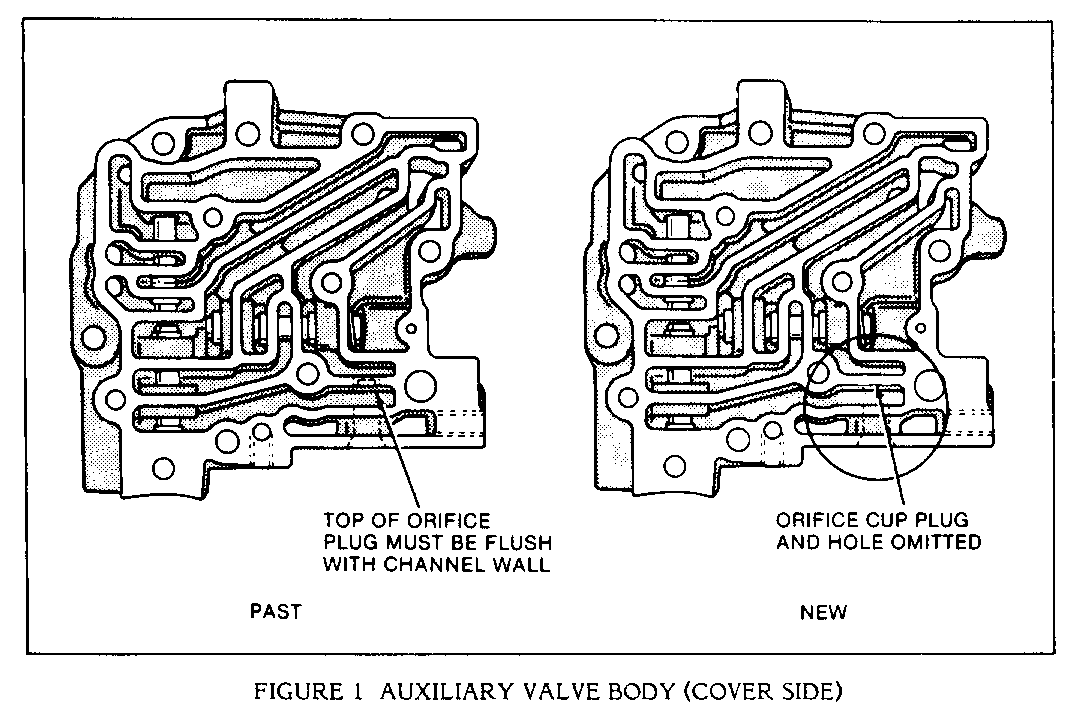
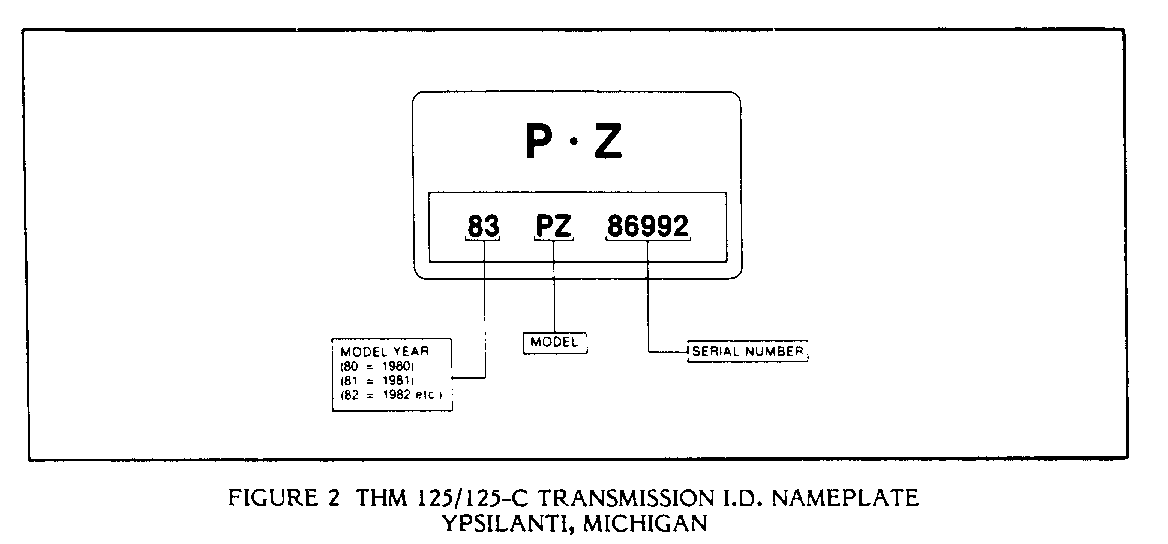
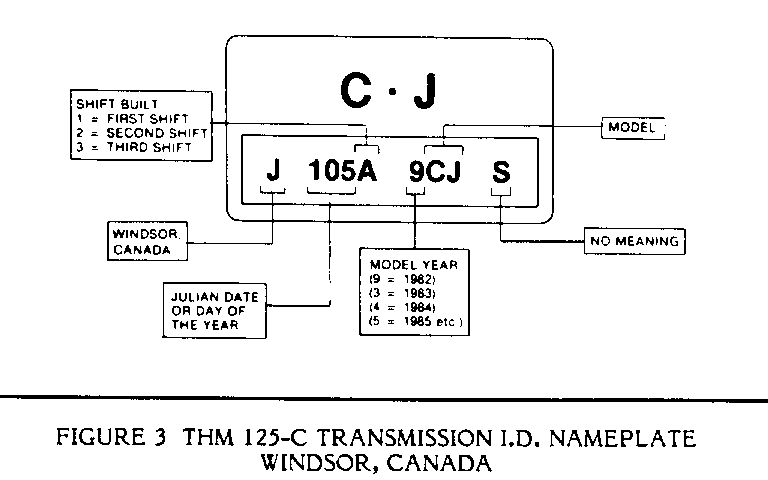
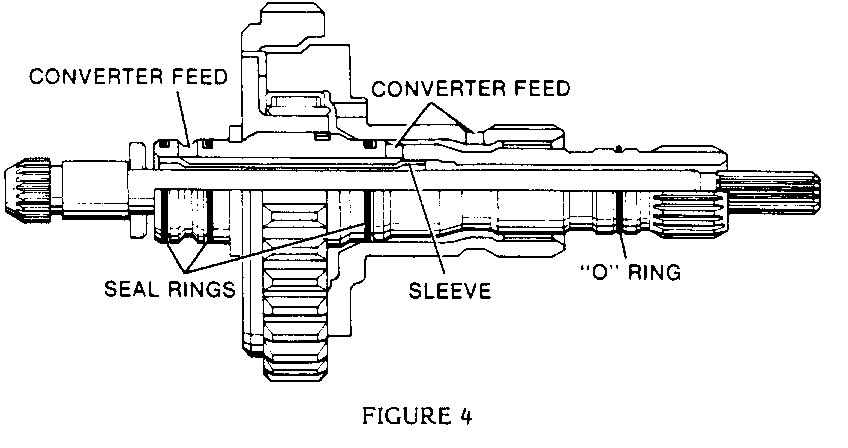
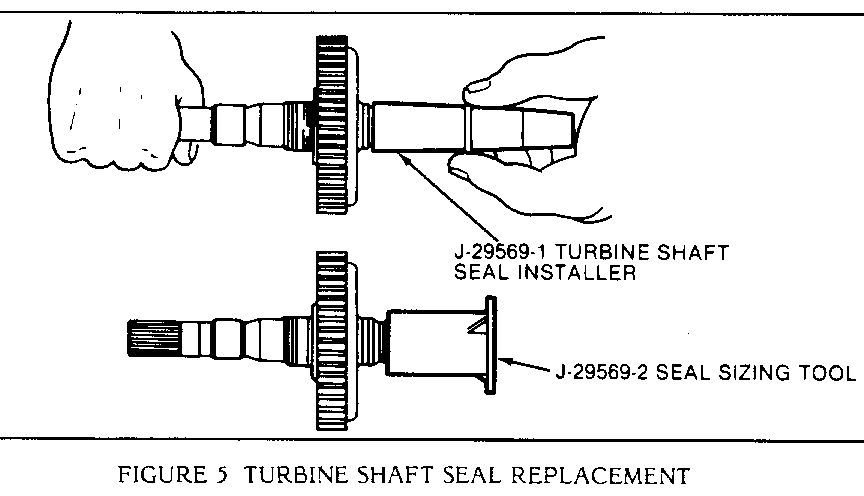
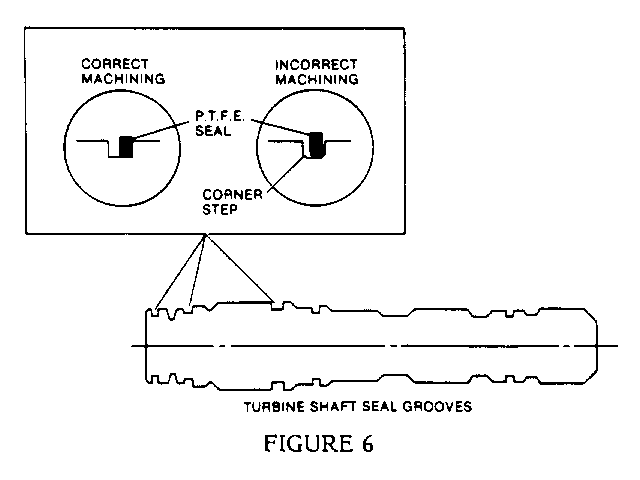
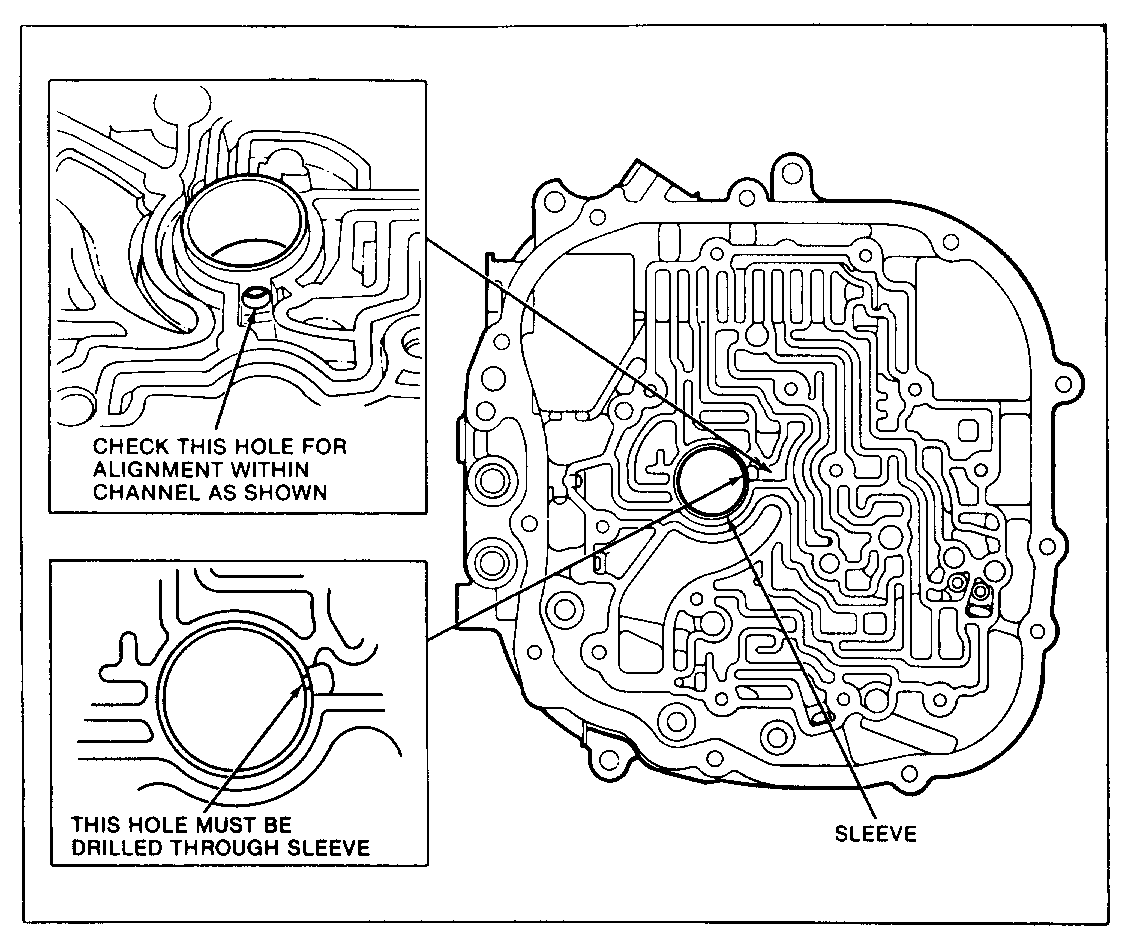
General Motors bulletins are intended for use by professional technicians, not a "do-it-yourselfer". They are written to inform those technicians of conditions that may occur on some vehicles, or to provide information that could assist in the proper service of a vehicle. Properly trained technicians have the equipment, tools, safety instructions and know-how to do a job properly and safely. If a condition is described, do not assume that the bulletin applies to your vehicle, or that your vehicle will have that condition. See a General Motors dealer servicing your brand of General Motors vehicle for information on whether your vehicle may benefit from the information.
